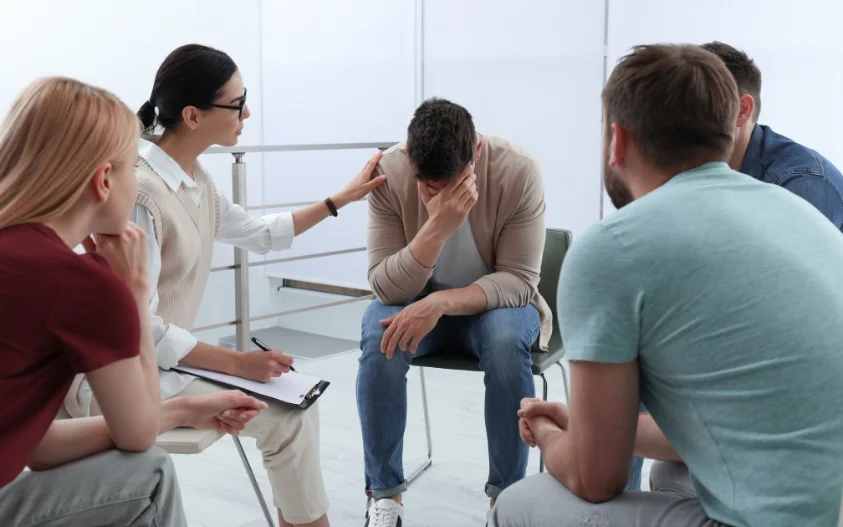24/7 Helpline:
(866) 899-111424/7 Helpline:
(866) 899-1114
Learn more about PTSD Rehab centers in Great Cacapon

Other Insurance Options

Health Partners

BlueShield

American Behavioral

CareSource

Medical Mutual of Ohio

Magellan Health

Choice Care Network

Ceridian

State Farm

Sliding scale payment assistance

Private insurance

UnitedHealth Group

Health Choice

Molina Healthcare

Regence

Evernorth

Cigna

CareFirst

Holman Group

Providence



Eastridge Health Systems
Eastridge Health Systems is a private rehab located in Berkeley Springs, West Virginia. Eastridge He...











